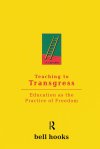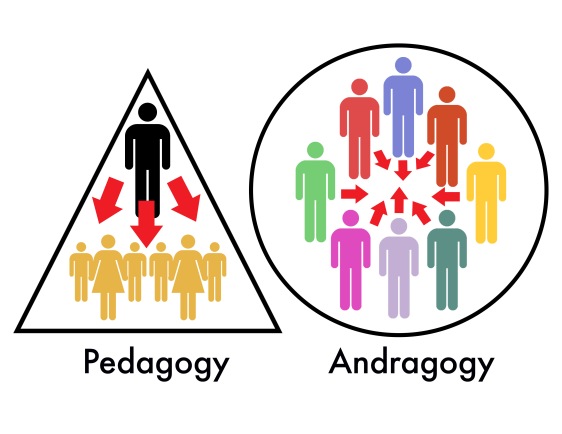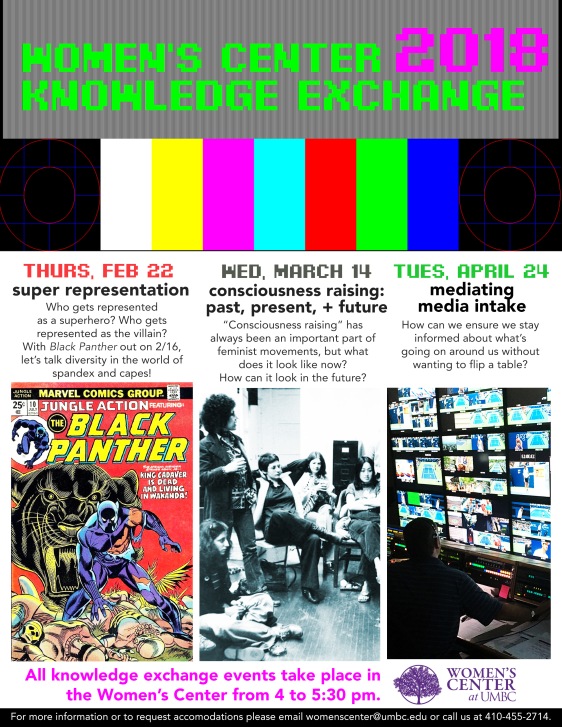In the last few iterations of our roundtable series, we’ve noticed that the classroom is, in many ways, replicated in the Women’s Center. Yes, we have beanbags and we gather together in a big friendly circle to discuss topics one might not cover in class, but structurally, we were learning in the same exact way. Experts are invited to talk, and we listen. Don’t get me wrong. All of our roundtables brought forth amazing conversations and beautiful insights. As much as the Women’s Center likes to be a space where classroom discussions can continue to grow, we also want to offer a new structure for having those conversations. We want to try something that incorporates social justice and brave spaces into how we learn. So this year we’re trying out knowledge exchanges.


Inspired by the tenets of radical pedagogy that are outlined by scholars such as Paulo Freire and bell hooks, we at the Women’s Center want to create space for learning that blurs the power dynamics of a typical teacher-student relationship and posits, instead, a team of “co-investigators.” For example, we envision an opportunity for professors, students, staff, community members, etc. to all come together to learn from each other and work out problems using their unique knowledge bases. This as opposed to a teacher leading a class to the solution of a problem. We hope that knowledge exchanges can be a sort of respite from the classroom for both students and teachers, as well as staff and all the other folks on our campus.

Missy introduced me to the concepts of pedagogy and andragogy, which strongly inform our Knowledge Exchanges.
In our knowledge exchanges we aim to do several things:
- Create a network of lifelong learners and curious co-investigators among all aspects of the UMBC community.
- Collaborate on dynamic solutions to complex, multi-faceted problems
- Have fun! No, really. A big goal with these knowledge exchanges is to build relationships across campus and make friends with the folks that are gathered together.
Led by Brave Space guidelines, we hope to have conversations that are led by the following values:
- We will respect each other as both learners and knowers; experts of our own lives and experiences.
- We will challenge ourselves as active listeners, community members, and co-investigators to collaborate with those gathered.
- We will build community by nurturing our relationships, holding each other accountable, and collaborating together in an equitable structure.
Knowledge exchanges will be a little messy at first. We’re all still sorting out what it means to work towards a learning space that’s more equitable to all involved. That’s what’s fun, though. We’re able to get messy, learn from each other, and hopefully use our combined knowledge to find the right questions and perhaps move towards some really good solutions.
Over the spring semester, we have three Knowledge Exchange events planned. Topics are broad and (hopefully) worthy of deep discussion creative problem-solving, and imagination:
- Thursday, February 22nd 3:30 pm to 5 pm: Super Representation
- Black Panther is out, and we want to know what you think about all of this superhero kerfuffle. We’re thinking about diversity in superhero movies, comics, toys, video games, etc. and we’re thinking about it more broadly than the tokenized sexy lady assassin or the wheelchair bound sidekick. Let’s talk about the possibilities of superhero diversity!
- Partners: Dr. Elizabeth Patton, faculty in Media and Communication Studies
- Wednesday, March 14th, 4:00 pm to 5:30 pm: Consciousness Raising: Past, Present, and Future
- Consciousness raising is an integral of feminist movements. Simply, consciousness raising is a gathering focused on learning more about experiences different from your own. In this Knowledge Exchange, we want to look back at the history of consciousness raising, how (and if) it happens now, and what it could look like in an ideal future.
- Partners: Dr. Jodi Kelber-Kaye, Assistant Director of the Honors College
- Tuesday, April 24th, 4:00 pm to 5:30 pm: Mediating Media Intake
- Do you ever read or watch or listen to the news and just want to cry? Or flip a table? Or hide? Us too. Let’s discuss strategies for keeping up to date and also keeping our mental and emotional health. In this Knowledge Exchange, we’re going to talk media literacy and conscious consumption.
- Partners: Dr. Rebecca Adelman, faculty in Media and Communication Studies
